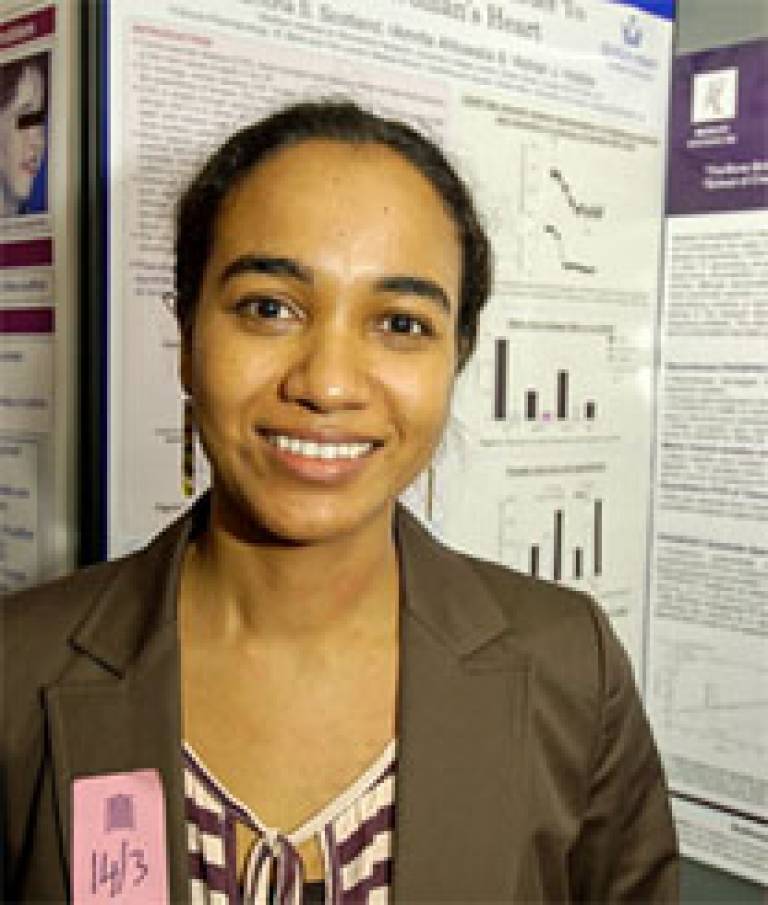UCL researcher presents work at Commons
30 April 2005
Research fellow Dr Ramona Scotland of UCL's Wolfson Institute of Biomedical Research presented a poster of her recent research at a parliamentary reception for young researchers in science, engineering, medicine and technology on 14 March 2005.

Marking UK National Science Week 2005, the event was organised by Science, Engineering and Technology (SET) for Britain, an organisation devoted to encouraging and promoting Europe's top young scientists, engineers and technologists through a series of high profile events. Competition is extremely high for places, and participants are given the opportunity to present posters and give short talks about their works. Medals are awarded to outstanding posters and research.
Dr Scotland presented a poster on her recent research into why pre-menopausal women have a lower incidence of cardiovascular disease than age-matched male counterparts. She said: "This is likely to be linked to the production of female sex steroids such as oestrogen and progesterone, but may also reflect lower levels of testosterone, since following menopause, incidence of adverse cardiovascular events is equivalent, or even greater to that in men. I'm hoping that this research may highlight a novel therapeutic target in the fight against cardiovascular disease."
Dr Scotland is part of the Guanylate Cyclase Research Group, led by Dr Adrian Hobbs. He said: "The focus of the team's research is the physiological and pathological actions and interactions of a family of homologous enzymes, the guanylate cyclases, with emphasis on the cardiovascular system. We employ a number of complementary techniques, including in vivo and in vitro pharmacology, biochemistry and cell and molecular biology, to investigate the significance of these enzymes in health and disease."
Dr Scotland specialises in the role of C-type natriuretic peptide (CNP) in regulating vascular homeostasis and investigation of the gender differences in cardiovascular risk. She said: "The SET for Europe was a terrific experience and there was a wide-range of excellent science presented. It provided young scientists, PhD students and post-doctoral fellows with the opportunity to meet members of parliament and to promote academic research in the UK."
To find out more about the research group or SET for Britain use the links below.
Link:
SET for Britain
 Close
Close

